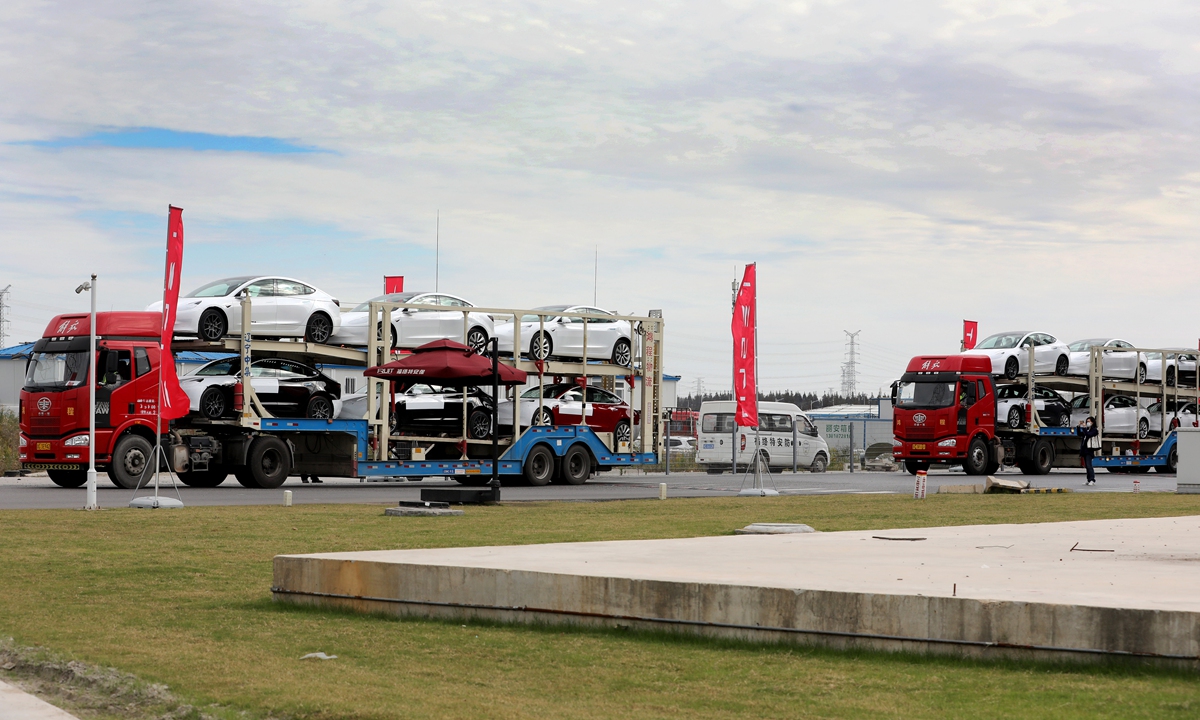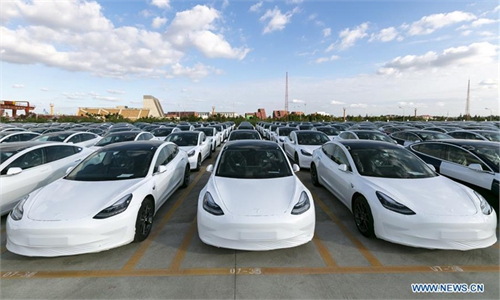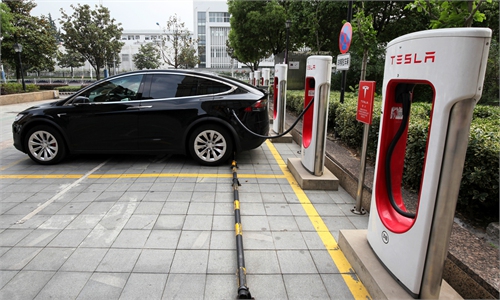SOURCE / INDUSTRIES
Tesla exports China-made Model 3s to Europe

Photo: Yang Hui/GT
About 10 months after Tesla Shanghai delivered the first batch of locally made Tesla 3s, the US-based electric car company announced that it will export China-made Tesla 3s to a dozen European countries.
The move is not only a reflection of the US electric carmaker's rapid development after it marched into the Chinese market, it also shows the dominance of China's electric car industry chain, with some experts predicting that the nation will become the world's top electric car factory.
On Monday morning, rows of made-in-China Tesla Model 3 cars were loaded onto ro-ro ships at the Shanghai Haitong International Automotive Terminal. The first batch of cars, thousands in number, will arrive at a port in Belgium at the end of November and then be sold to more than 10 European countries including Germany, France and Italy.
Zhu Xiaotong, Tesla's global vice-president and head of Tesla China, hailed the move as a "milestone" in the development of Tesla's Shanghai plant, saying that it not only displayed the speed of Chinese factory construction, but showed the quality of Chinese manufacturing.
Tesla set a record of building the phase one Gigafactory 3 facility in suburban Shanghai in only about 10 months, although the speed also triggered some market controversy.
According to experts, the vehicles produced by Tesla's Shanghai plant have an overwhelming edge in cost compared with US factories, which, combined with the high quality of "Made in China," make it more cost-effective to export to Europe from China instead of the US, analysts said.
"Such exports are also of great significance to Tesla's global strategy as it looks to fully mobilize its production capacity after its Shanghai factory's capacity climbs rapidly," Wu Shuocheng, an independent car analyst, told the Global Times on Monday.
He predicted that Tesla will start local production after its German factory is built, and the focus for Shanghai's capacity could shift to Southeast Asia in addition to meeting demand in China's local market.
Exports of made-in-China Model 3s also reflect the general superiority of China's electric car industry chain. In the first six months of this year, China exported 36,900 new-energy vehicles (NEV), up 140.7 percent on a yearly basis. In comparison, China's total exports of cars and parts slumped by 15.6 percent on a yearly basis to $27.75 billion.
"China has special advantages in the completeness of its NEV industry chains, whereas Europe lacks software and intelligent networks, and the US lacks certain parts such as batteries," Song Jin, an independent car analyst, told the Global Times on Monday.
Combined with such advantages such as subsidy support by the Chinese government, and relatively low wages, means that China can create a local industry chain with lower costs, giving the country dominance in electric car exports, Song said, adding that China will likely become the world's major NEV manufacturing base.
Qin Yuming, secretary-general of the Cold Chain Logistics Committee from China Federation of Logistics & Purchasing, told the Global Times that the biggest difficulty of finding the sources of virus in cases relevant to cold-chain lies in failure to "track the food all the way."
"The full life circle of cold-chain products involves production, processing, packaging, handling, transporting, storage, display and selling. Improving the digital tracking during logistics is important to secure the safety of cold-chain products," Qin said.




